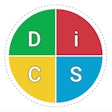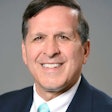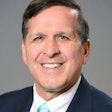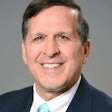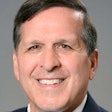
If there's one constant frustration most dentists suffer with, it's problems within the team.
Remember our friend Bill? He actually got to the point he hated his team -- hated! He was so fed up with everything they did that he was almost in that weird place of being giddy and hopeless. He had given up hope altogether and was just trying to piece a day together, one at a time. He prayed that his team wouldn't at least break something or throw something away; believe it or not, they had actually thrown away good pieces of equipment!
Your practice is likely nothing close to his, although I'm sure you have your frustrations and concerns. I would ask you to make a list right now, but that would probably irritate and distract you. Instead, I want to teach some leadership and management skills you can put to use right away -- as in today!
Team members start working in your practice with the best of intentions. They want to do a good job. They're excited about the possibilities, and they hope they've found the perfect place they'll be able to work a long time. No one likes to have to look for a new job and everything that goes with it. So the honeymoon starts -- and, at some time in the near future, ends. That's when the trouble starts. How can you keep the relationship good, focused, productive, and professional?
In no specific order, let me review what needs to be in place in your practice to keep team problems to an absolute minimum.
Have a clear understanding of what is expected of each team member.
This should be written down, signed, and made a part of the team member's personnel file. Update this if anything changes. When a team member knows what is expected, it gives a solid basis for future discussions.
Have accountability to the team and to you.
Yes, you've heard this before, but no one's told you how to actually achieve it, right? It starts with the first item, then develops into the person monitoring and reporting to you and the team on at least a monthly basis the completion of assigned duties and tasks.
I recommend that the team member make a checklist to be turned in each month for you to review. You may think that seems either easy or problematic; if you think that's easy, then incorporate that right now. If you think it will be problematic, I ask you, "Why?"
Unfortunately, by not holding team members (and yourself, too!) accountable to what you're supposed to be doing, soon it won't be getting done. Shortly, your team members will just be doing what they want when they want. Yes, they'll help you with the necessary job duties, such as greeting and seeing patients and the like, but soon you'll discover an accounts receivable out of control or your recare program in shambles, and more.
When you have team members who are NOT completing their job tasks, you must talk with them immediately. Too many dentists put it off because they're not sure how to handle the situation. Actually, it's simple: Bring the team member into your office and ask what seems to be the trouble, that you've noticed him or her not consistently completing assigned tasks. Be quiet and listen. Look for ways to support the team member if he or she has a good attitude and is sincere in trying to complete the tasks. If the team member is indifferent, you made a bad hire. Move the employee along to another job outside your practice as quickly as possible, because he or she is a cancer in your practice.
Avoid overstaffing.
I see many dentists that hire too many team members, thinking, "If one of them is sick, I won't be inconvenienced." Overstaffing causes a plethora of problems, including the following:
- Too much "spare time" since there usually isn't enough work to go around (and that, my friends, spells trouble!)
- Excess overhead (Do you really want to work harder just to keep those extra people on staff?)
- Extra personalities to handle (can be very complicated for the uninitiated)
- The notion that "I can miss a day because Susie will cover for me," which actually promotes absenteeism (a very bad habit)
- Poor work habits and work pace
I encourage you to staff as leanly as possible. When team members know they are counted on each and every day, and the whole team suffers if they don't pull their load, they're likely to work harder. If you do the math, most dental practices can work with one assistant, one hygienist, and one hygiene assistant in the clinical portion of the office and still produce more than $1 million annually. You won't be overworking them; they'll be busy, and busy means no time for hanky-panky. Would you rather have to produce x dollars to cover y overhead with only z profit, or something different?
Spend the time training, and do it regularly and often.
One complaint I hear from most team members is that they don't know what they're supposed to be doing, how to do it, or even what the dentist is trying to accomplish. New team members should be given a training schedule with the responsibility to have it completed by a reasonable time frame, and this training schedule should incorporate the rest of the team teaching the new team member what they need to know, which serves many purposes.
For existing team members, look to constantly upgrade their skills and knowledge. Since not every team member will be on the same level (probably ever), I recommend twice-a year "growth conferences" to sit down with each team member individually, and plot what the next area of professional growth and development needs to encompass, setting timelines for completion. (Email me for a sample growth conference format.)
For items that all team members would benefit from, such as communication and relationship skills, devote a team meeting to teach that or bring someone in to help your team develop those skills.
Learn to say thank you often to your team members, individually, as a team, and at team meetings.
Positive reinforcement is more powerful than negative feedback. Look for ways to provide this essential ingredient of a healthy workplace. You may even want to consider special rewards for outstanding work -- but make sure it's outstanding in every respect.
What type of rewards? Hand out notecards at a team meeting, asking team members to write their name on the card, and list five things you could choose from if you wanted to reward them for outstanding work. Then ask them to give you the cards and keep them in your desk for future reference -- and hopefully use.
When Bill began communicating with his team instead of just staying mad at them all the time, things began to change. As he incorporated training, accountability, and more, his team responded positively. Yes, a few left because they knew they couldn't get away with what they had been doing -- and that was good for Bill's practice. Soon Bill was feeling more in synch with his team, and he was on his way to a better daily work experience -- and so was his team.
Your team problems can begin to melt away if you'll take some time on a regular basis to implement what I've outlined. In future articles, I'll continue to discuss more about this topic and other topics that we dentists face daily. See you next time!
Don Deems, DDS, FAGD, is known is The Dentist's Coach, and is actively engaged in private dental and coaching practices. His latest book, The Dentist's Coach: Build a Vibrant Practice and the Life You Want, is available via his website, as well as a book he co-authored with Stephen Covey and Ken Blanchard, Roadmaps to Success: America's Top Intellectual Minds Map Out Successful Business Strategies.









